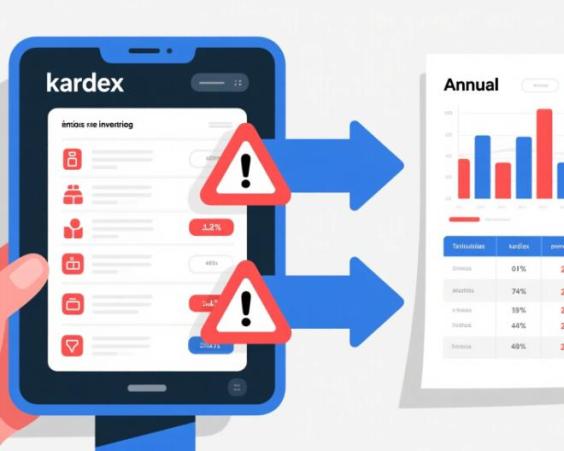Implications of Errors in the Kardex for Annual Financial Statements
The kardex is a financial document that records the entries and exits of inventory of a company, and is fundamental for the preparation of annual financial statements. However, errors in the kardex can have significant implications for the accuracy and reliability of financial statements. In this article, we will explore the possible implications of errors in the kardex for annual financial statements.

What is the kardex and why is it important?
The kardex is a financial record used to control and manage a company's inventory. It is used to record entries and exits of inventory, as well as to calculate the cost of goods sold and the value of inventory on hand. The kardex is fundamental for the preparation of annual financial statements, as it provides the necessary information to calculate a company's profitability and financial position.
Types of errors in the kardex
There are several types of errors that can occur in the kardex, including:
- Registration errors: errors in the registration of entries and exits of inventory, such as omitting records or including incorrect records.
- Calculation errors: errors in the calculation of the cost of goods sold or the value of inventory on hand.
- Classification errors: errors in the classification of inventory items, such as incorrectly classifying an item as an asset or liability.
Implications of errors in the kardex for annual financial statements
Errors in the kardex can have significant implications for the accuracy and reliability of annual financial statements. Some possible implications include:
- Inaccuracy in profitability: errors in the kardex can affect the accuracy of a company's profitability, which can lead to incorrect decision-making by investors and creditors.
- Inaccuracy in financial position: errors in the kardex can affect the accuracy of a company's financial position, which can lead to incorrect decision-making by investors and creditors.
- Non-compliance with accounting standards: errors in the kardex can lead to non-compliance with accounting standards, which can result in penalties and fines from regulatory bodies.
- Loss of trust: errors in the kardex can lead to a loss of trust by investors and creditors, which can affect a company's ability to obtain financing and conduct business operations.
Conclusion
In conclusion, errors in the kardex can have significant implications for the accuracy and reliability of annual financial statements. It is essential that companies implement adequate controls and procedures to ensure the accuracy and reliability of the kardex and, therefore, of annual financial statements.
Some recommendations to avoid errors in the kardex include:
- Implementing adequate controls and procedures: implementing adequate controls and procedures to ensure the accuracy and reliability of the kardex.
- Regularly reviewing and auditing the kardex: regularly reviewing and auditing the kardex to detect and correct errors.
- Training personnel: training personnel on the importance of the kardex and on adequate procedures for its preparation and review.
By following these recommendations, companies can ensure the accuracy and reliability of the kardex and, therefore, of annual financial statements.





